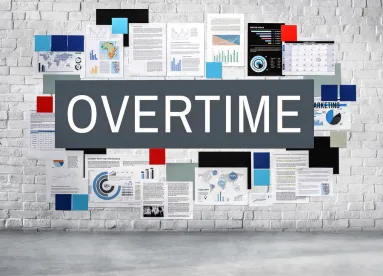Litigation challenging the new DOL regulations that, among other things, set a minimum salary threshold of $47,476 for exempt status, white-collar workers, was recently filed in U.S. District Court for the Eastern District of Texas. A group of 21 states filed suit: Alabama, Arizona, Georgia, Indiana, Iowa, Kansas, Kentucky, Louisiana, Maine, Michigan, Mississippi, Nebraska, Nevada, New Mexico, Ohio, Oklahoma, South Carolina, Texas, Utah, and Wisconsin.
The states claim that the new salary threshold rule will force local and state governments to unfairly increase the costs of employment. The chief argument appears to be that the new rule, by more than doubling the previous minimum of $455 per week to $913 per week (or $23,660 changed to $47,476, annualized), will wreak havoc on State budgets and is in violation of the Tenth Amendment to the U.S. Constitution. (The Tenth Amendment reserves for the States all powers not specifically delegated to the federal government.)
The lawsuit claims that the new DOL rule constitutes an effort to “commandeer, coerce, and subvert the States.” Although the more than doubling of the salary minimum also certainly impacts the bottom line for private businesses, this Tenth Amendment argument does not offer much of anything, at least on paper, to private employers. Most commentators are not optimistic about this argument’s impact on governmental employers, either. Governmental employers also generally have the option to provide compensatory time in lieu of time and one-half pay for non-exempt workers, an option that is not available to private employers.
In 2014, President Obama directed the Department of Labor to update its regulations concerning the so-called “white collar” exemptions to overtime under the Fair Labor Standards Act. In July of 2015, proposed regulations were made public for notice and comment. More than 270,000 comments were filed. The new regulations’ impact has generated heated debate.
Despite the current litigation, it is not advisable for employers to stop their current efforts geared to December 1, 2016 compliance (or budget reviews and other planning for compliance purposes). As previously noted in blog posts on here, here, and here, the new salary minimum for exempt status deserves some significant thought and planning for most employers.
The rule is still scheduled to go into effect on December 1, 2016, and most commentators believe that this litigation will not impact implementation of the new salary threshold for exempt status. There is some hope, however, that the litigation may alleviate the regulation’s current automatic adjustments that are slated to occur every three years, starting in January 2020. The automatic adjustments are pegged to the fortieth percentile of salaried workers in the lowest-wage Census region. The DOL has estimated that the initial increase in 2020 will be set the minimum salary amount for the white-collar exemptions at approximately $51,168.
Although some employers may have been holding out hope for litigation efforts to “ride to the rescue” and save the day by December 1, 2016, this litigation is not generally anticipated to override the new $47,476 minimum rule for white collar workers. Employers should continue to prepare for the new regulations.




 />i
/>i

